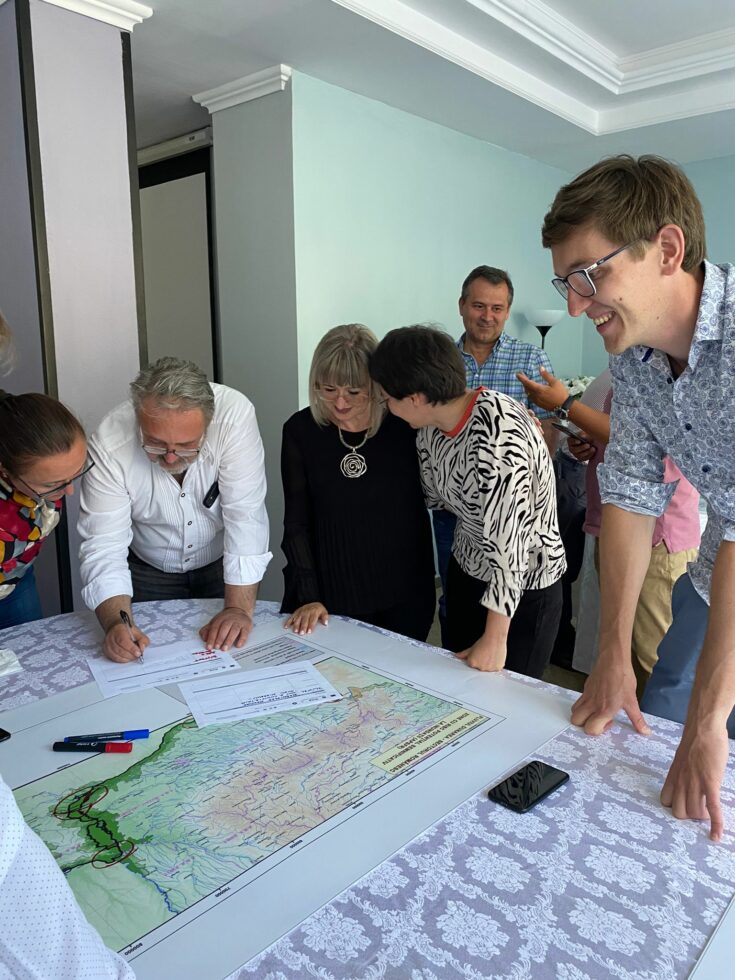UPDATE – HOW IS HKV’S FLOOD RISK PROJECT IN ROMANIA GOING NOW?
We often say that patience is a virtue. Job Udo, partner and adviser within the River, Coasts and Delta department at research and consultancy firm HKV can vouch for that. In 2011 he worked on a flood risk project in Romania that was co-financed by Partners for Water. While the concepts developed in the project were not immediately implemented, they proved to be a valuable stepping stone for the successful acquisition of a World Bank tender, standing as one of HKV’s biggest projects.
12 years ago Job worked on a project to support the Romanian government in developing flood risk maps. Job explains: ‘The project was financed by Partners for Water and consisted in giving training on innovative, probabilistic methods and developing a nature-friendly measure to limit flood risks.’ What Job couldn't have imagined back then, was that the plans from 2011 and the network that he had left over in 2021 would play an important role in winning and implementing a World Bank tender.
World Bank tender
Via the World Bank tender, HKV, together with three other companies from England and Romania, were tasked with determining the flood risks in Romania, in accordance with the European Floods Directive. Together with the Romanian Ministry of Environment, Water and Forests, dozens of local counterparts and a large number of Dutch colleagues, Job identified the flood risks throughout Romania and developed plans to limit these risks.
Mapping flood risks
Job enthusiastically explains what he has been working on over the past two years: ‘As well as mapping over 100 areas at risk of flooding, for 30 of these areas we worked out measures to reduce the risks.’ Job explains that in order to do this, they gratefully made use of the project that was financed by Partners for Water in 2011: ‘At that time, we developed nature-friendly measures to reduce the flood risks for a flood plain along the Danube. We used the same concept again and also applied it to other areas lying along the banks of the Danube.’

Space for river nature
The team deliberately chose to implement nature-friendly measures, because Romania depends on European funding for the implementation of the measures. Job explains: ‘From the European Union the focus is on greening European waters and using Nature-based Solutions. This is why most of the measures that we have proposed focus on improving river nature and making space for the water’s natural course.’
The Romanian context
After working in Romania for 15 years, Job knows the local work culture and has a close connection with his Romanian counterparts: ‘The people here have in-depth knowledge and skills in the field of water management. In contrast with the Netherlands, the country is managed centrally. You can also see this way of working reflected in the local organisations. Employees who are below management level often don't make any significant work-related decisions here. This is why it’s important to know the right people in the right positions.’

Waiting for implementation
The implementation plans developed following the World Bank tender were submitted to the Romanian government last spring and we’re now waiting for approval for financing. In order to increase the chances of the nature-friendly measures being implemented, the Romanian government has also submitted the concept from 2011 – for the areas around the Danube – to a European biodiversity programme. Job: ‘Hopefully the plans will be approved quickly so that we can obtain the necessary funding and the measures can be implemented. I am quite proud that the Romanian government has so embraced this concept, and this is partly thanks to the initial Partners for Water project.’